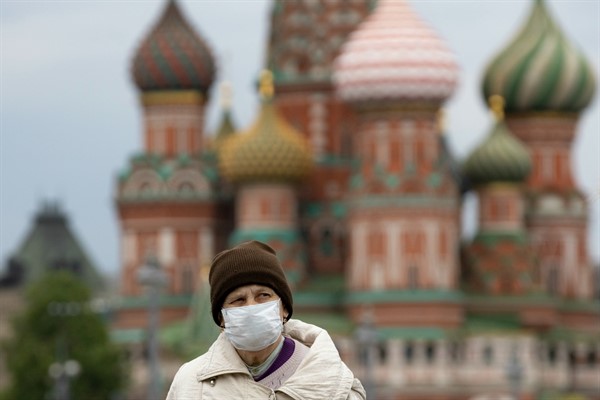Russia’s COVID-19 story is one of paradoxes. Despite an underfunded public health system, new cases have plateaued since mid-May, and the country has not seen the explosion in deaths from the coronavirus that some experts predicted. Yet President Vladimir Putin’s approval ratings have been sinking. Why? Russians seem to realize that they have so far avoided the worst in spite of Putin’s government, not because of it.
As of June 8, the official total of infections was just over 450,000—the third-highest count in the world after the United States and Brazil—but Russian officials say that is because of their high rate of testing. The death toll was just under 6,000, which is likely to be an undercount—not so much because of any nefarious Kremlin plot, but rather because of Russia’s convention for counting deaths. It excludes those who may have had the virus but did not die directly of it. There is also a customary reluctance within the hierarchy to report bad news up the chain of command. Even the most extreme claims, though, put the Russian death toll at perhaps three times the official figure, which is still less than the hardest-hit European countries.
Putin himself can hardly claim much credit. Although he has regularly spoken about the importance of spending on public health, the pandemic has exposed many of the health care system’s failings, including a lack of intensive care beds and personal protective equipment. Meanwhile, for a country with a reputation for top-down administration, the positive aspects of Russia’s response have largely come from local initiatives. Networks of small anti-plague centers, formed under the Soviet Union after an outbreak of bubonic plague in the 1920s, have mobilized against the coronavirus. These centers had built up experience from earlier outbreaks of tuberculosis, another highly infectious disease that attacks the respiratory system.

